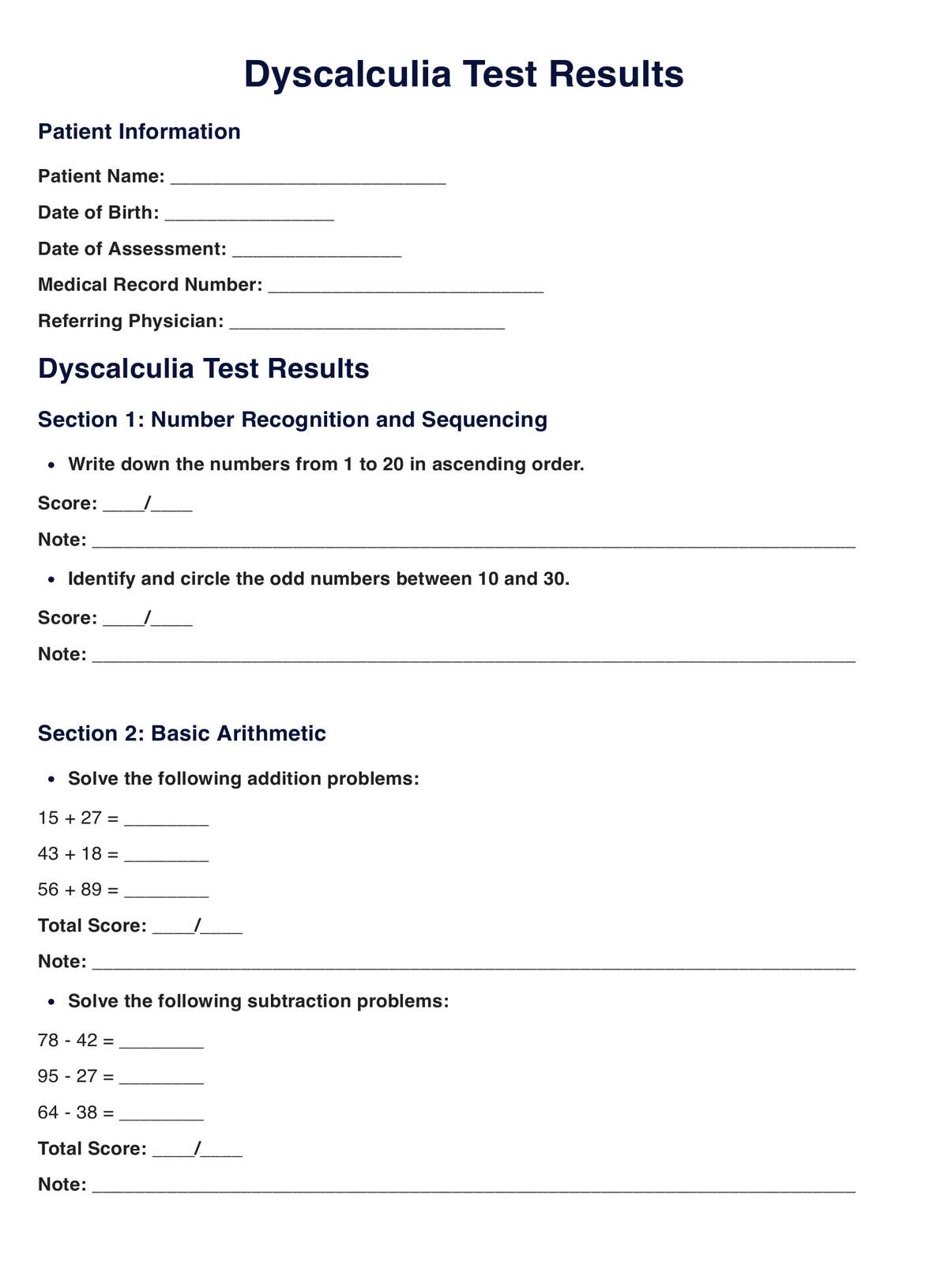Dyscalculia can be tested using a variety of assessments, including standardized tests, clinical examinations, and thorough evaluations by healthcare providers or learning specialists.

Test for Dyscalculia
Unlock insights into Dyscalculia with our comprehensive guide on testing, providing essential tools for accurate assessment and tailored support.
Use Template
Test for Dyscalculia Template
Commonly asked questions
If you suspect you have Dyscalculia, you can take a dyscalculia test or screening to assess your mathematical abilities and gain insights into potential signs of Dyscalculia.
While screening tools and checklists are available, a qualified healthcare provider or educational psychologist should make a formal diagnosis. Self-diagnosis is not recommended.
EHR and practice management software
Get started for free
*No credit card required
Free
$0/usd
Unlimited clients
Telehealth
1GB of storage
Client portal text
Automated billing and online payments











